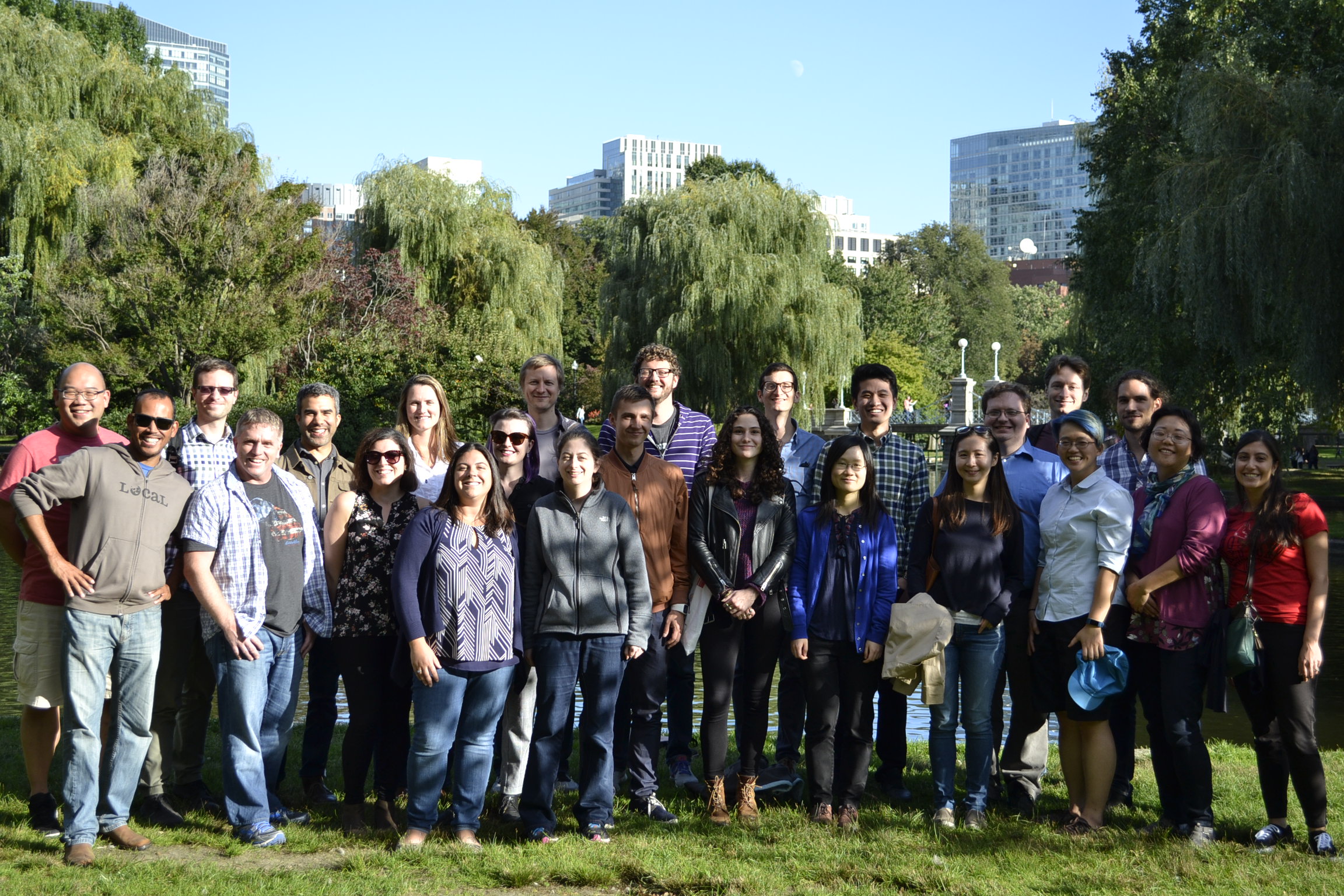About the Neale lab
We devise novel statistical methods for large scale genetic data to gain insight in to the epidemiology and biological mechanisms of complex traits. All of our tools are shared freely with the scientific community through open source software.
Announcements:
[17th July 2020] Results are now available from a multi-ancestry GWAS analysis of 7,221 phenotypes across 6 continental ancestry groups in the UK Biobank. This effort was led by Alicia Martin, Hilary Finucane, Mark Daly and Ben Neale, lead analysts Konrad Karczewski and Elizabeth Atkinson, with contributions from team members at ATGU. The summary statistics have been made available on the Pan UKBB website.
[19th November 2019] You can now explore the results of our heritability and genetic correlation analyses in two new browsers. Read the associated blogposts here and here for more details on each of these analyses.**
[29th October 2019] The round 1 version of our UK Biobank GWAS results will de removed from Dropbox on December 15th 2019.
[1st August 2018] We have now released an updated (second) round of GWAS results of the UK Biobank. Click on the shortcut "UK Biobank" header link at the top of this page.
Expertise: Benjamin Neale has over a decade of experience in advancing statistical methodology for genetic studies, with an extensive track record of conducting analyses for big data, such as genome-wide association and next generation sequencing data. The majority of the group's research activities have been conducted as part of large-scale international consortia, with a particular focus on psychiatric illness including collaborative efforts on ADHD, Autism, and Schizophrenia as part of the Psychiatric Genomics Consortium (PGC). These efforts underscore our commitment to understanding the genetic influences on psychiatric illness and how to translate those findings to insights into the biological basis of these diseases. We have developed novel statistical approaches and implemented these methods in open source software that has been widely adopted by the scientific community.
Group research: As part of the PGC team, we conducted the largest genome-wide association study (GWAS) of schizophrenia to date, uncovering 108 genetic loci robustly associated with schizophrenia risk. We're also conducting similar work to discover the first genetic risk loci for ADHD. Much of our research focuses on the development of new statistical approaches to understand the impact of genetic variation on human disease and variation. These efforts include the development of LD Score regression, an approach to delineate between confounding bias and polygenic inheritance in genome-wide association data, and C-alpha - a novel test for rare variants that is robust to variants conferring both risk and protective effects.
Commitment to sharing among the scientific community: We firmly believe in sharing consented genetic data and study results broadly, and believe there is tremendous value in enabling the wider scientific community the opportunity to independently investigate and data. We are also strong advocates of open access publication and commit to posting all of our manuscripts to an open access preprint server such as bioRxiv.org. Please read more about our publication policy here.
Group structure and culture: Our research activities fall under three main umbrellas: data, methods and software. We have an experienced research scientist overseeing each of these areas to provide additional guidance to our postdocs and students and to help steer the various projects. We encourage more senior group members to take on mentorship of new trainees, and actively seek opportunities to connect people within the group through new collaborations that enable them to learn from one another.
Affiliations and location: Along with Mark Daly and Daniel MacArthur's labs, we are members of the Analytical and Translational Genetic Unit (ATGU) of Massachusetts General Hospital. We are also part of the Stanley Center for Psychiatric Research at the Broad Institute, and typically split our time between these two communities in Boston and Cambridge respectively. See our contact page for more details of where to find us.
For internal research use: https://sites.google.com/a/broadinstitute.org/atgu
